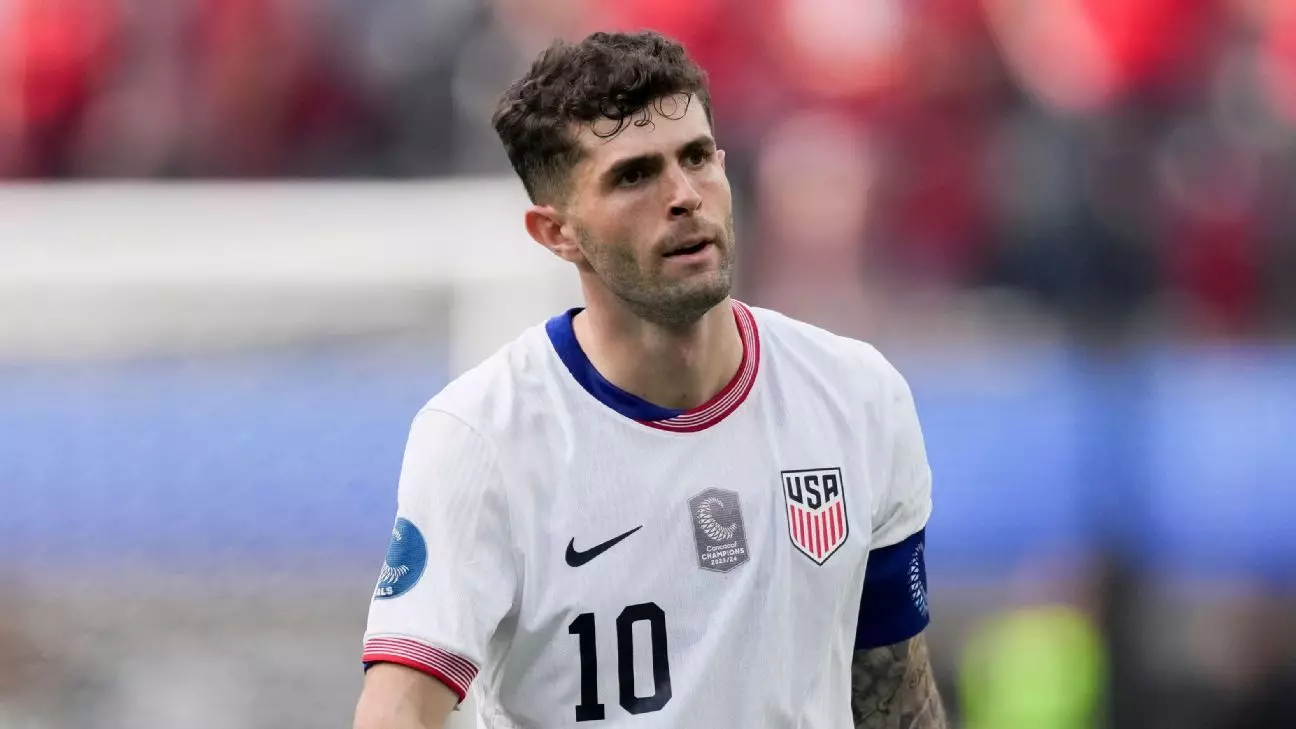In the realm of professional sports, the expectations placed on athletes can often overshadow their personal circumstances and well-being. This has never been more evident than in the recent discourse surrounding Christian Pulisic’s decision to forego participation in the upcoming Gold Cup for rest after a demanding season with AC Milan. Soccer pundit Landon Donovan sharply criticized Pulisic’s choice, indicating a broader sentiment in the sports community towards player commitment and passion for national representation. Donovan’s comments underscore an existing tension between the physical limits athletes face and the expectations of fans and former players alike.
As Donovan articulated during a Fox Sports broadcast, he recalled the fervor and dedication displayed by legends like Cristiano Ronaldo, who, despite age and fatigue, continued to represent their countries with unwavering commitment. It raises an essential question: should players sacrifice their well-being for the sake of national pride? While Donovan’s impassioned stance may resonate with many fans who honor a tradition of robust representation, it also dismisses the reality of physical and mental exhaustion faced by modern athletes.
Mark Pulisic’s Insightful Retort
In response to Donovan’s vocal criticism, Mark Pulisic—Christian’s father—brought attention to Donovan’s own career choices, referencing a time when Donovan took a sabbatical from soccer. This reminder served not only as an attempt to contextualize his son’s decision but also to humanize the conversation surrounding player commitments. By using a ChatGPT response that detailed Donovan’s own hiatus due to mental and physical exhaustion, Mark highlighted that even the most revered athletes sometimes need to prioritize their wellbeing over the game.
This back-and-forth raises an insightful point: the importance of acknowledging personal boundaries in a culture that often glorifies endurance. The notion that an athlete should push through every ache and fatigue can lead to burnout and, ultimately, a decline in performance. It’s vital for players like Pulisic to know when to step back, recharge, and come back stronger—not just for their clubs, but for their national teams as well.
The Broader Implications for U.S. Soccer
The criticisms directed at Pulisic are not isolated within a vacuum of personal opinions. They reflect a larger trend in U.S. soccer that grapples with how to balance individual player needs with the collective goal of national success. Former players like Alexi Lalas have echoed Donovan’s sentiments, arguing that with the 2026 World Cup looming on the horizon, every opportunity for cohesion within the squad is crucial. While Lalas’ enthusiasm for national representation is commendable, it again overlooks the complexities involved in each player’s journey.
The impending World Cup serves as an enormous source of pressure for U.S. soccer players, and this pressure can push elite athletes to operate at their limits. Yet, the construction of a cohesive team that can compete at the highest levels also necessitates players who are wholly dedicated—emotionally, mentally, and physically. The challenge lies in balancing the need for player readiness while also ensuring they aren’t sacrificing their long-term health in pursuit of short-term goals.
Cultural Shift in Athletic Commitment
As the conversation around athletes’ mental health begins to gain traction, it’s essential that the narrative evolves from one of pure representation to one that recognizes the complexity of modern-day athletics. Athletes today are expected to act as public figures, symbols of national pride, and, at times, even marketing tools for their respective sports. In this high-stakes environment, prioritizing mental health should be viewed less as an act of defiance and more as a profound act of self-care and professionalism.
Ultimately, the discussion surrounding Pulisic’s choice should pivot towards a more respectful understanding of athlete wellbeing. Rather than vilifying players for choosing rest over representation, the sport needs to champion these decisions. A cultural shift is necessary—one that acknowledges fatigue and mental health as vital components of a player’s career. Through this understanding, the game can continue to evolve not only in terms of performance but also in nurturing its most valuable asset: the athletes themselves.

